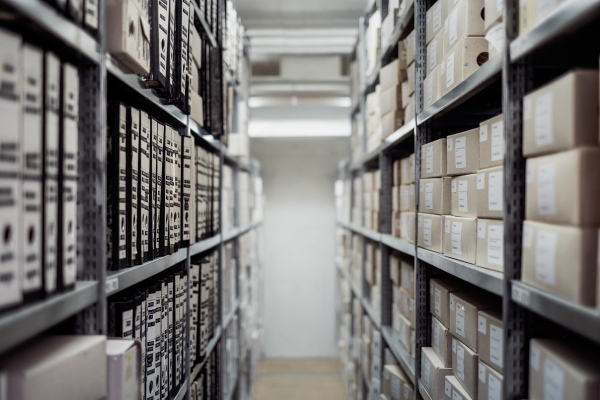Back-ups and archives – what’s the difference?
If you run a SME, you will no doubt store data in more than one place. (If you don’t then we advise you start right now – but that’s another conversation!)
People often talk about the secondary place for this data as a ‘back-up’ or ‘archive’ as if the two words are interchangeable, but they actually mean very different things. Yes, both support your primary storage, but they are there for different reasons.
Back-ups are usually in place in the event of something going wrong. For instance, if your server fails, you won’t need to worry too much because duplicates of your vital documents and sensitive data are also sitting safely and securely on your cloud. A back-up is generally a bulk copy of data – nothing less and nothing more.
Archives are more of a long-term measure, implemented with the preservation and retention of your business documents in mind. These materials can typically date back decades – even pre-digital, paper-based files can be archived as searchable scans. Notable advancements in the sophistication of archive systems now mean they are often worth investing in as a way to save staff time and streamline processes – as well as for storing things that are not needed day to day.
Costs and access
Aside from objectives, there are other differences between back-ups and archives. Cost is one of them. Back-up is cheaper as it’s generally an automated catch-all process. Meanwhile, archiving might involve the careful regrouping or reordering of files to a ‘permanent’ resting place, demanding a greater investment of time and money – at least at the outset.
They way back-up and archives are accessed can also differ. Back-up is designed for large-scale recovery, whereas archives are there to offer increasingly quick and specific access to an item via metadata, and intended to be a subset of your overall data.
Backing up your archives
Remember that if you have ‘retired’ old data from your main drive to an archive, that will be the only copy of this information you have. So, if something goes wrong, it could be lost forever – unless you back that up too. Some companies still use tape storage or disks for a low-cost offline copy in a secure location, whilst others keep a duplicate of the full archive.
Questions to ask
There are lots of factors to consider when configuring – or reconfiguring – a data recovery or archiving system that will be right for your business, now and for the foreseeable future. It’s therefore important to work out precisely what you need from yours before making any snap decisions.
Do you want to back up everything, or just key files/folders? How often should this happen? What tools, media and formats should be used? Where should this information be stored?
Within this planning process, take care to remember the laws surrounding the storage of personal data and see that this is encrypted – then later deleted when it’s no longer required or relevant. And remember, although encryption means that data is far better-protected against unauthorised eyes, it’s essential to ensure that such system management is always forward-looking – you don’t want to run the risk of not being able to access your information in the longer term, when personnel and technology change.
So, in summary, whilst they are designed for different reasons, back-up and archives complement each other. If your current systems are tangled together – making data retrieval complicated and time-consuming – then don’t despair! A good IT consultant can offer innovative solutions for a fresh new start and provide you with peace of mind that your essential data is stored away, safe and sound.
Could your back-up and archive systems be better? Talk to Q2Q today to see how we can help!
Keywords
advicebackupblogbusinesscloudcompliancecyber attackscyber securitycybersecuritycyber threatsdatadata breachdata processingdata protectiondata securityemployeesGDPRitIT Supportmanaged ITmanaged IT supportoutsourcingoutsourcing ITprotectionscaleupsecuritySMEsoftwarestartupsupport
Watch our NEW brand video



